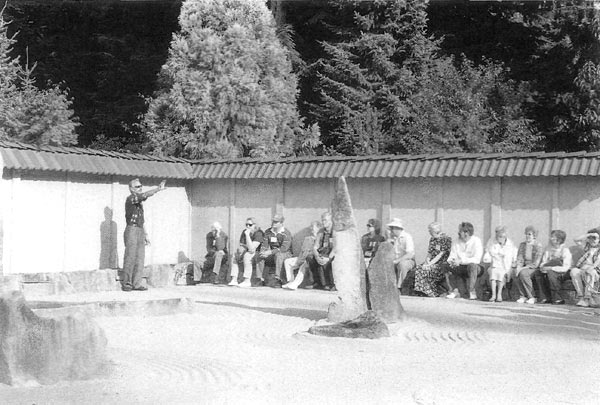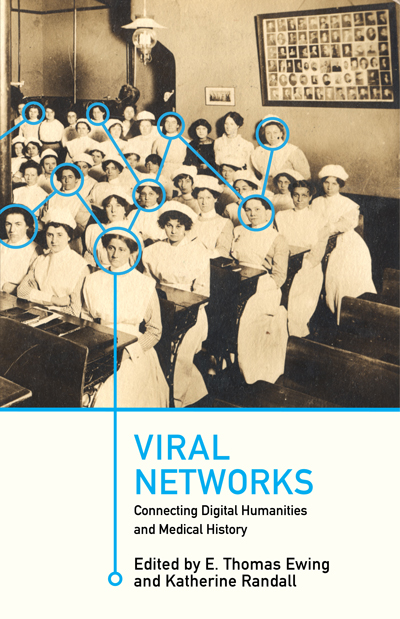JARS v9n1 - From the President
From the President
Dick Brooks
Concord, Massachusetts
A little more than two score and ten years ago, a group of far-sighted individuals in Portland, Oregon, brought forth on this continent a new organization, dedicated to promoting the culture and appreciation of the genus Rhododendron . That organization has grown beyond the fondest dreams of its founders, and growers across the continent, and indeed in the far corners of the globe, have since benefited from their vision.
This year we celebrate the golden anniversary of that momentous event, the incorporation of the American Rhododendron Society, with a five-day extravaganza, hosted (naturally) by the Portland Chapter. Be sure to read all the enticing details in this issue, and start planning now to attend what will be, for most of us at least, a once-in-a-lifetime experience.

|
|
Terry Welch, far left, explains the thought behind his Japanese dry landscape
garden to convention-goers at the 1994 AR5 Western Regional Conference. The Welch garden, carved from a wooded landscape near Woodinville, Wash., also includes an enclosed area near the house with bonsai specimens, koi pool and azaleas; an open park-like expanse accented with natives and exotics; and a Northwest mixed woodland. Photo by Sonja Nelson |
In October, your Board of Directors met in Lynnwood, Wash., to transact the business of the Society. Among the many matters discussed were:
• The need to disseminate to the gardening public information on planting and care of rhododendrons and azaleas. It was pointed out that lack of such information often leads to failure, and consequently to the unfortunate conclusion that rhododendrons are difficult or impossible to grow in many parts of the nation (see Austin Kennell's excellent article on this subject in the Summer 1994 Journal). It was decided to establish a Public Education Committee to promote proper planting and cultural techniques, realizing that regional differences may influence those techniques in different areas of the country.
• The possibility that the national ARS office might assume the responsibility for invoicing and collection of dues, on an anniversary renewal basis, rather than the present system of billing by the chapters on calendar year basis. A committee is to study the many implications of such a change, and report to the Board at its spring meeting. If you have opinions or suggestions regarding this proposal, do convey them to your district director.
Finally, a reminder: If you have not yet returned the membership questionnaire which was included in the fall issue of the Journal, do it now. If our Society is to be what you want it to be, your opinions are vitally important!
